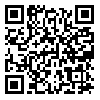Volume 7, Issue 2 (5-2020)
JROS 2020, 7(2): 73-78 |
Back to browse issues page
Download citation:
BibTeX | RIS | EndNote | Medlars | ProCite | Reference Manager | RefWorks
Send citation to:



BibTeX | RIS | EndNote | Medlars | ProCite | Reference Manager | RefWorks
Send citation to:
Yahoueian Z, Najaf Najafi M, Habibzadeh Shojaie R, Sharifi Dalooei S M A, Hejrati H, Parsa A et al . Educational Effect of Telegram-Based Virtual Training on Orthopedic Residents’ Knowledge in the Field of Spine Surgery. JROS 2020; 7 (2) :73-78
URL: http://jros.iums.ac.ir/article-1-2084-en.html
URL: http://jros.iums.ac.ir/article-1-2084-en.html
Zahra Yahoueian1 

 , Mona Najaf Najafi2
, Mona Najaf Najafi2 

 , Reza Habibzadeh Shojaie1
, Reza Habibzadeh Shojaie1 

 , Seyed Mohammad Ata Sharifi Dalooei1
, Seyed Mohammad Ata Sharifi Dalooei1 

 , Hamid Hejrati1
, Hamid Hejrati1 

 , Ali Parsa1
, Ali Parsa1 

 , Farzad Omidi-Kashani1
, Farzad Omidi-Kashani1 




 , Mona Najaf Najafi2
, Mona Najaf Najafi2 

 , Reza Habibzadeh Shojaie1
, Reza Habibzadeh Shojaie1 

 , Seyed Mohammad Ata Sharifi Dalooei1
, Seyed Mohammad Ata Sharifi Dalooei1 

 , Hamid Hejrati1
, Hamid Hejrati1 

 , Ali Parsa1
, Ali Parsa1 

 , Farzad Omidi-Kashani1
, Farzad Omidi-Kashani1 


1- Department of Orthopedics, Faculty of Medicine, Mashhad University of Medical Sciences, Mashhad, Iran.
2- Department of Community Medicine, Faculty of Medicine, Mashhad University of Medical Sciences, Mashhad, Iran.
2- Department of Community Medicine, Faculty of Medicine, Mashhad University of Medical Sciences, Mashhad, Iran.
Abstract: (2549 Views)
Background: The widespread use of social networks among students seems to provide an appropriate opportunity to track the effects of the media on their educational capabilities.
Objectives: We aimed to investigate the effect of virtual education (via Telegram messaging service during six months) on the knowledge of orthopedic residents of Mashhad University of Medical Sciences in the field of spine surgery.
Methods: This quasi-experiment study was conducted on 25 orthopedic residents with an Mean±SD age of 31.4±4.1 years. During a 6-month training course, 85 educational spinal cases were presented in the form of riddles, video questions, or case presentations and were discussed among orthopedic residents. Before and after the intervention, a reliable and valid exam comprising 70 multiple choice questions about different topics of spinal surgery was taken to evaluate the level of students’ knowledge. We used the annual residency promotion exam to compare the correlation coefficients obtained by Fischer exact test, paired t test, and independent t test for statistical analysis.
Results: The Mean±SD score of the assistants’ knowledge in the pretest and post-test exams were 42.8±6 and 45.2±9.2 (out of a total score of 70). Despite the obvious increase, the values were not statistically significant (P=0.09, t=-1.7). The intervention was associated with an increase in the level of knowledge in 17 residents (68%) while in 8 (32%), this 6-month virtual training course has had no significant effect. In this regard, age, marital status, housing, activity level, or level of residency (from the first to fourth year) had no significant relationship with knowledge improvement.
Conclusion: virtual spinal education for six months using the social network of Telegram could improve the level of knowledge in most orthopedic residents, although the observed difference was not statistically significant.
Objectives: We aimed to investigate the effect of virtual education (via Telegram messaging service during six months) on the knowledge of orthopedic residents of Mashhad University of Medical Sciences in the field of spine surgery.
Methods: This quasi-experiment study was conducted on 25 orthopedic residents with an Mean±SD age of 31.4±4.1 years. During a 6-month training course, 85 educational spinal cases were presented in the form of riddles, video questions, or case presentations and were discussed among orthopedic residents. Before and after the intervention, a reliable and valid exam comprising 70 multiple choice questions about different topics of spinal surgery was taken to evaluate the level of students’ knowledge. We used the annual residency promotion exam to compare the correlation coefficients obtained by Fischer exact test, paired t test, and independent t test for statistical analysis.
Results: The Mean±SD score of the assistants’ knowledge in the pretest and post-test exams were 42.8±6 and 45.2±9.2 (out of a total score of 70). Despite the obvious increase, the values were not statistically significant (P=0.09, t=-1.7). The intervention was associated with an increase in the level of knowledge in 17 residents (68%) while in 8 (32%), this 6-month virtual training course has had no significant effect. In this regard, age, marital status, housing, activity level, or level of residency (from the first to fourth year) had no significant relationship with knowledge improvement.
Conclusion: virtual spinal education for six months using the social network of Telegram could improve the level of knowledge in most orthopedic residents, although the observed difference was not statistically significant.
Type of Study: Research Article |
Subject:
Hand surgery / Elbow
Received: 2019/11/11 | Accepted: 2020/05/12 | Published: 2020/05/30
Received: 2019/11/11 | Accepted: 2020/05/12 | Published: 2020/05/30
| Rights and permissions | |
 |
This work is licensed under a Creative Commons Attribution-NonCommercial 4.0 International License. |






